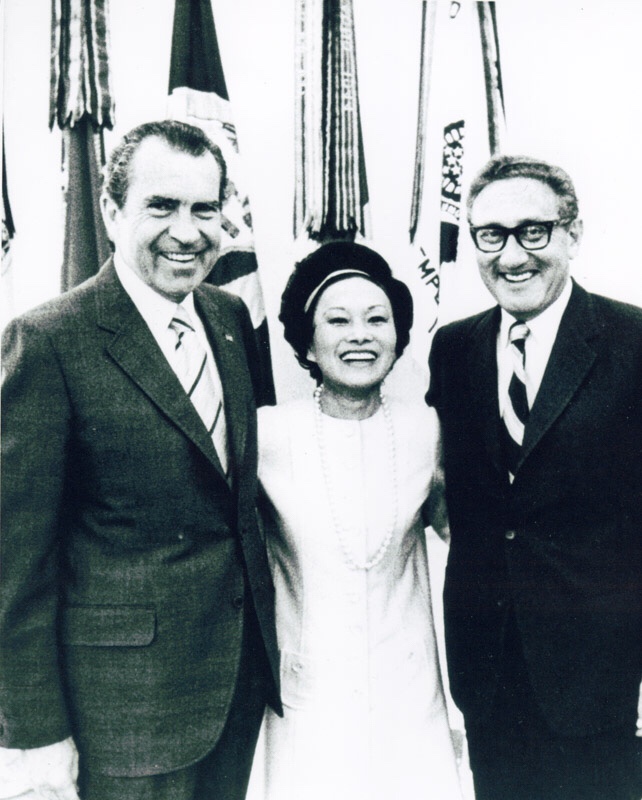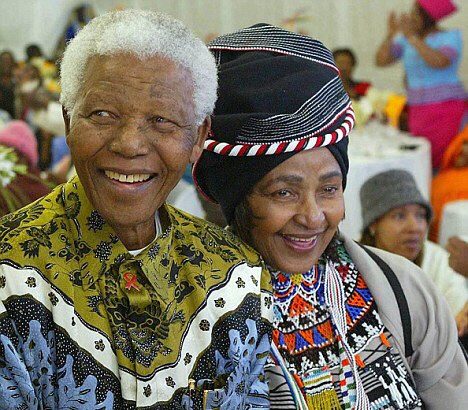Two formidable women who represented some of the last century’s great international conflicts have died.
Anna Chennault was the legendary Chinese-American widow of a renowned World War II general who herself embodied the Cold War era anti-communist “China Lobby” and controversially assisted Nixon’s Vietnam maneuvers in the 1968 election.
Winnie Mandela was the ex-wife of anti-apartheid leader Nelson Mandela who touted his cause during his decades in prison, for which her admirers called her “mother of the nation,” but who was herself implicated in terror and even murder.
Both Chennault and Mandela were survivors par excellence. The former escaped the brutal Japanese conquest of Hong Kong, became a teenage journalist in wartime China, wed decades-older US Army General Claire Chennault of the Flying Tigers, and became a pillar of the powerful China Lobby that championed Chiang Kai-shek’s exiled Nationalists on Taiwan as China’s legitimate regime, contra Mao’s victorious communists.

As a widow, Chennault was a Washington hostess, lobbyist, occasional diplomatic envoy, and Republican fundraiser. Often she’s recalled as Nixon’s envoy to South Vietnam’s president in 1968, reputedly urging him to reject Lyndon B. Johnson’s election-eve peace gambit with Hanoi’s communists that would’ve boosted Hubert Humphrey.
Later, Chennault denounced American abandonment of South Vietnam and of Taiwan in favor of recognizing Beijing. But she herself went to Beijing to assist Reagan’s relations with China and to conduct her own business. She was tireless, ambitious, opportunistic, pragmatic, and crafty. Nixon privately called her “Dragon Lady.” She’s the last survivor of the old China Lobby of former Christian missionaries to China and other Asian-focused anti-communists who dreamt of displacing Mao in favor of the Methodist couple that ruled in Taipei.
Nelson Mandela was raised Methodist, and memories of his faith seem to have guided his post-imprisonment career of racial reconciliation and nation-building in post-apartheid South Africa. During her husband’s long incarceration, Winnie helped stoke the fires of active resistance to the white-minority regime. But while his solitude was apparently sanctifying, her activism unleashed darker forces of the soul.

The African National Congress’s global public image in the 1980s was not helped by her infamous endorsement of incinerating alleged police informants with fuel-soaked tires around the neck. She managed her own squad of vigilantes who tortured and sometimes murdered purported dissenters within the ANC, including a 14-year-old boy, for which she was convicted of assault and kidnapping.
Mandela evaded imprisonment, likely in deference to her by then released and empowered husband. But Bishop Tutu’s Truth and Reconciliation Commission strongly chided her misdeeds, for which she expressed some remorse. Her husband divorced her. But neither his disapproval nor the ruling ANC’s disenchantment inhibited her own political comeback and service in parliament.
In 2013, two more bodies of Mandela’s likely victims were unearthed by her home, but her brutalities did not prevent largely favorable obituaries that preferred to celebrate her defiance of apartheid. Undeniably, she was brave but she also was embittered and cruel. Violent struggles against injustice can ennoble, but they also can corrupt.
It’s often forgotten that during the Cold War many Americans feared the ANC, with its South African Communist Party ally, would Sovietize a post-apartheid nation, replacing racial oppression with totalitarianism. But the Iron Curtain fell, and Nelson Mandela emerged as a democrat and beloved agent of reconciliation. Maybe prison protected him from becoming what his ex-wife became.
Like Winnie Mandela, Anna Chennault outlived her older husband and established her own considerable reputation. After escaping ravaged WWII era China, she, unlike Mandela, lived safely and comfortably, though she faced some challenges as the Asian wife of a white man in segregated 1950s Louisiana.
Chennault’s obituaries highlighted her 1968 election controversy with Nixon and Vietnam. But her story encompassed several of the twentieth century’s tectonic political shifts, from WWII era Japanese occupation of China, to China’s rise as a great power. She championed, in her way, both China and America, and her savvy pragmatism maybe exhibits how relations between the two can productively if uneasily proceed.







 Sponsor a student for Christianity & National Security 2024
Sponsor a student for Christianity & National Security 2024